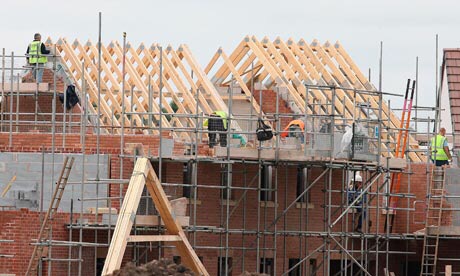An ambitious strategy to ensure Manchester can build a minimum of 25,000 homes over the next decade is set to be approved by the City Council’s executive this week.
Manchester is currently experiencing a huge rate of growth that requires a planned vision to meet the housing demand for both buying and renting.
The city was the fastest growing in the UK between 2001 and 2011 with more than 80,000 people moving to Manchester and that growth has continued over the last five years.
The city’s reputation is internationally competitive with fast growing employment sectors (particularly in digital, creative, life sciences and construction) and renowned education institutions, which are helping to retain working people. But to support this continued growth the city needs a range of affordable housing products across all housing types, while being mindful of high quality standards and sustainability.
Following a consultation, the Residential Growth Strategy sets out six priority themes for housing in the city that will ensure Manchester remains attractive and liveable – along with a detailed implementation plan that identifies priorities over the short to medium term.
The action plan will be reviewed and updated annually to monitor and refresh the actions to ensure homes continue to be built amid a changing housing landscape.
The plans recognise that the city’s housing stock needs to keep pace with a growing population and without more new homes house prices will inevitably rise. There is increased risk of a growing affordability gap, a lack of coherence between income and available housing and a housing offer that is more unattractive and crowded.
Although in many parts of the city houses are affordable compared to large areas of the UK, limited access to mortgage products, large deposits and poor credit ratings have severely limited access for young people to enter the housing market. Manchester will work with Manchester Place and developers to ensure there is a diverse portfolio of housing that includes homes that are available to first time buyers.
Historically people have moved out of the city when having children, but in the last two decades Manchester has sought to create popular neighbourhoods with excellent transport and amenities that appeal to residents and encourage them to remain in the city. The housing offer needs to support this need through new family housing across a range of prices in areas of strong demand.
Manchester’s fastest growing sector, private rented is likely to rise to 40% in the next decade but fragmented ownership can lead to inconsistent management standards. The recently launched Manchester Market Rental Pledge looks to improve the support mechanisms in place for tenants, and a targeted approach to landlord licensing may also be required. Good operators are also being brought into the market, such as Matrix Homes – a joint venture organisation borne from an innovative housing model in partnership between the council and the GM Pension Fund, which has blazed a trail nationally for the new model of market rent in family housing.
Meanwhile options will be made available for people who want to stay in the city as they get older through positive down-sizing options – which also frees up larger family homes – and purpose built accommodation, which can reduce isolation and dependency on healthcare. Sites have already been approved by the council for 400 specialist homes in the next five years.
Cllr Bernard Priest, Deputy Leader of Manchester City Council, said: “Put simply we need more high-quality, liveable homes with high sustainability credentials. These homes should be in attractive neighbourhoods with the services and amenities close by, supported by good transport links to educational facilities and employment. I think this strategy is what we need to make that happen.
“This is a long-term plan with huge ambition, which is absolutely necessary to support the success of the city and the year-on-year growth we have seen. However, critically, the strategy can also adapt to short and medium terms changes to housing need and policy, enabling us to react quickly and amend our strategy towards what is required to support a growing population.”







